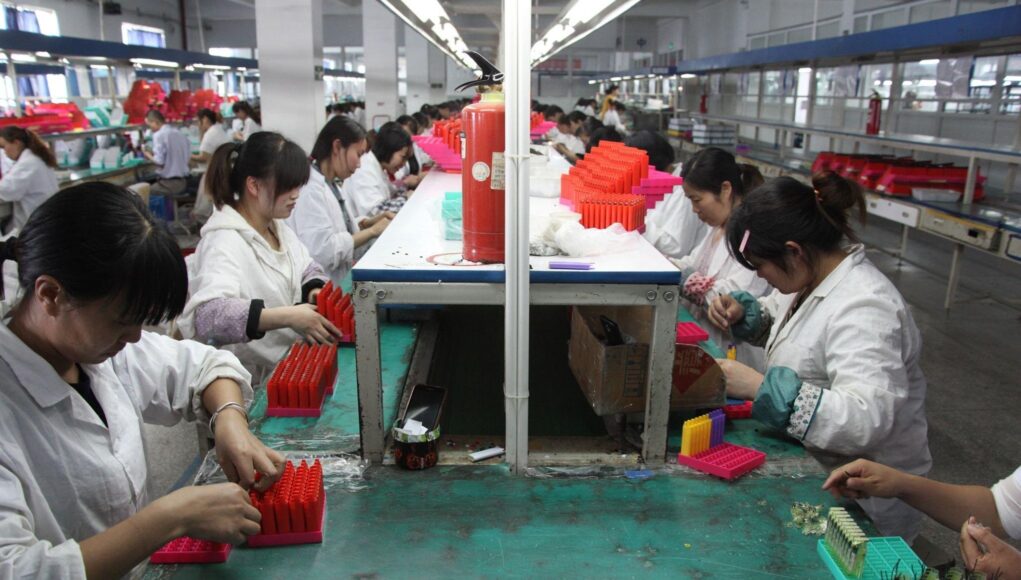The decision to move production to China needs proper thought and due diligence. Globalization has increased the competition level, so businesses are seeking efficient and cost-effective manufacturing solutions to survive.
In this post, let’s explore the business benefits of moving production to China and assess whether it is a good strategic decision for your business.
Economic Advantages
Moving production to China has historically offered several economic advantages for companies.
- Lower Labor Costs: Businesses can tab labor force at relatively low labor costs compared to many other countries. It can reduce the overall production costs significantly, especially labor-intensive industries.
- Skilled Workforce: The workforce in China is large and competent, particularly in sectors like manufacturing and technology. Your business gains access to a wide range of talents, skills and expertise.
- Infrastructure and Supply Chain: Chinese government and suppliers has invested in a robust infrastructure and supply chain network, including transportation, logistics, and manufacturing capabilities. This can help to streamline production processes and reduce lead times.
- Economies of Scale: China’s large population and vast market offer economies of scale for companies producing goods locally.
Companies can potentially benefit from producing at a larger volume to meet both domestic and export demand.
- Supplier Base: Supplier base is vast and diverse allowing foreign businesses to move their production to China. It helps your company to source raw materials and components at competitive prices.
- Research and Development: Chinese suppliers are increasing its investment in research and development to ensure international standard product quality.
It is also transforming China into a potential hub for innovation and technology development.
- Special Economic Zones: China Government has established special economic zones (SEZs) to encourage foreign investors.
SEZs offer more generous economic policies and regulations, which not just reassures foreign investment, but even export-oriented production.
Market Expansion and Accessibility:
- Growing Consumer Base: China has a vast population [more than 1.4 billion], so is a gigantic consumer market.
Moving production to China can allow your business to gain exposure to a wide customer base and tailor your products to local preferences, driving sales and revenue.
- Export Opportunities: China’s export-oriented economy makes it an ideal base for companies looking to reach global markets.
Establishing production facilities in China can facilitate easier access to neighboring Asian markets and create a platform for international expansion.
- Regulatory and Trade Agreements: The Chinese government has historically offered various incentives to attract foreign investment and production. These incentives might include tax breaks, grants, and favorable regulatory treatment.
China has entered into various trade agreements and partnerships that can offer businesses preferential treatment, reduced tariffs, and streamlined customs procedures.
These agreements can enhance a company’s competitive advantage and make production in China an appealing option.
Challenges and Considerations:
- Cultural Differences: Operating in a different cultural and business environment can present challenges in terms of communication, management, and understanding local market dynamics.
Companies need to invest in cross-cultural training and establish strong relationships to navigate these complexities effectively.
- Intellectual Property Concerns: Chinese have faced criticism for intellectual property (IP) infringement and counterfeiting issues.
To secure their IP, companies must implement rigorous legal measures and partner with trusted local entities.
- Geopolitical Risks: Geopolitical tensions and trade disputes can impact the stability of operating in China.
Companies should be prepared for potential disruptions and diversify their manufacturing footprint to mitigate risks.
Conclusion:
The benefits of moving production to China are awesome. It ranges from cost savings and market accessibility to technological advancements and export opportunities.
However, it is crucial for companies to weigh these advantages against the challenges posed by cultural differences, intellectual property concerns, and geopolitical risks.
A decision to relocate production to China should be made after careful consideration of the specific industry, company goals, and risk management strategies.
When executed thoughtfully, production relocation to China can be a strategic decision that propels your business towards growth and success on the global platform.










